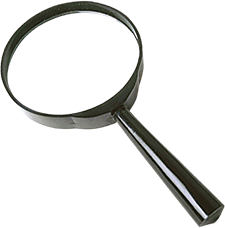If you’re part of a homeowners association and are selling your home, take advantage of this often overlooked benefit.
You probably know that when you sell your home, you can exclude from your taxable income a certain amount of gain (profit)—up to $500,000 for married couples filing jointly and $250,000 for individuals—if you meet basic requirements. (Find out if you owe taxes on your home sale.) And you probably know that certain improvements you’ve made to your home can lower your gain.
But did you know that some of the improvements your homeowners association (HOA) made can also reduce your gain when you sell your home? Those monthly dues or special assessments you’ve paid while a homeowner were spent improving your community as well as maintaining it. When you sell, it’s time to reap the benefits. Here’s how.
First, find your percentage ownership in the association
You can typically find your association percentage in the HOA’s Declaration. If you belong to a cooperative, you can find this number on your share certificate or proprietary lease. Use this percentage to determine your cost share of the community’s capital improvements while you were a homeowner.
Then, learn which improvements qualify
Not all home improvements are made equal. Repairs don’t count—like fixing a gutter. But capital improvements do, such as adding storm windows, landscaping and certain energy efficiency improvements. (For additional examples of qualified capital improvements, view IRS Publication 523.) Be sure to get an accounting from your HOA of improvements made while you were a homeowner.
Next, do the math
Add up the cost of the qualified improvements made by your HOA while you owned your home. Then times that by your ownership percentage. That’s the amount you can subtract from your gain to help you meet the taxable exclusion limits.
Here’s a simple example
You recently sold your home and calculated your gain to be $270,000. That’s $20,000 over the $250,000 allowable tax-free gain for individuals.
You own a 3 percent interest in your homeowners association. During the years you’ve owned your home, the association spent $600,000 in capital improvements. Times that by your percentage ownership and your share of that cost is $18,000.
Subtract that from your $20,000 taxable gain, and now you’ll only need to pay taxes on a gain of $2,000!
When calculating your gain, there are a number of factors to take into consideration. Be sure to carefully review IRS Publication 523 or talk with a tax or financial advisor when submitting your taxable income upon the sale of your home.
This article contains general information. Individual financial situations are unique; please, consult your financial advisor or tax attorney before utilizing any of the information contained in this article.
Related Articles
- How To Collect Delinquent HOA Dues And Fees
- HOA & Homeowner Association FAQ
- How to Start a Neighborhood Association
- HOA Website Can Save Money And Increase Communication
- How Neighborhood Assoc Websites Can Increase Participation
- A Condo Association Website Can Facilitate Communication
- Neighborhood Watch-How to Start One!
- Utilizing a Neighborhood Watch Website
- An Effective Meeting Agenda
- Funding a Reserve Study
- HOA Maintenance - Who Has Responsibility for What?
- Budget Preparation Tips
- Directory of Association Articles
 Print
Print Email
Email








